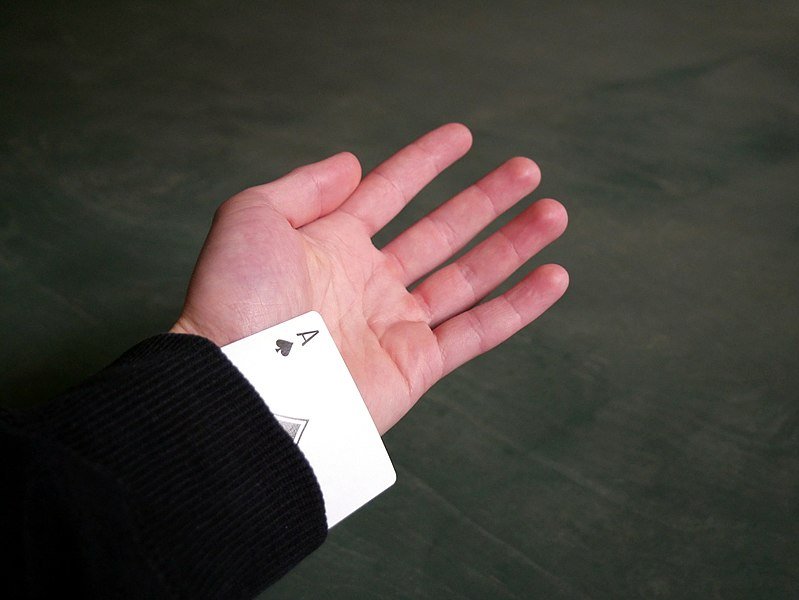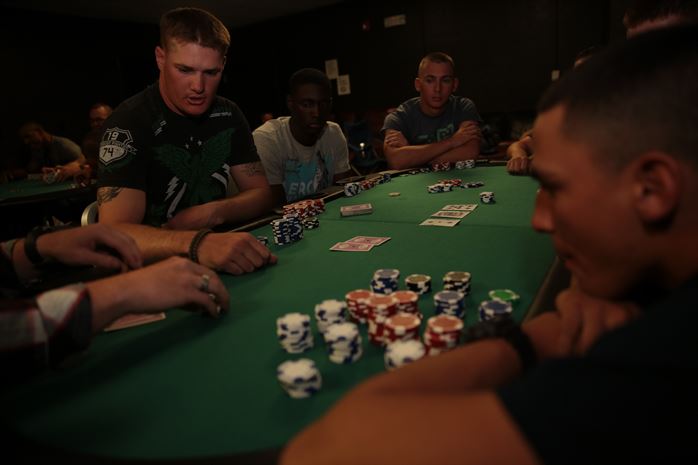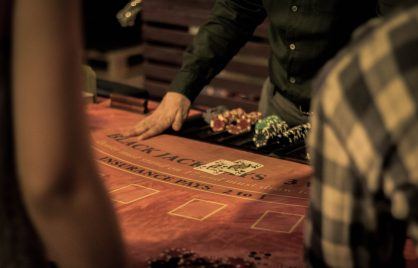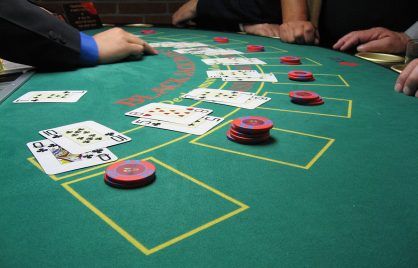R. Paul Wilson On: “Did I Get Cheated?”
It’s a common question, at least to me.
I hear it whenever someone feels burned by a previous bad beat or unusual gambling scenario.
The answer is usually “probably not” but let’s consider a few cases where someone might have been ripped off in a game of chance.

Probably Not.
This is the most common answer to most suspicions.
Look, bad beats happen to good people and while great players often suffer at the fickle hands of fate, most of us are not as good as we think we are.
For every excellent decision we make, how many foolish ones do we get away with before we run into a difficult situation across the green-baize battlefield?
This is where real experts excel over time by making more good calls than bad ones. But for those of us who are casual players or enthusiasts, we simply don’t dedicate enough time to cover every possibility.
That player who just sniped your chips for the fifth time might just be a better player than you or is having an unbeatable run of luck. The more you play, the more extreme bust outs you’re likely to see.
Your four of a kind got trashed by a straight flush just like in the movies?
Seasoned players call outlandish outdraws a “cold deck” which is exactly what we call it when cheating a game with a pre-stacked deck. It’s where the term comes from but the chances are that luck is stacking the deck against you, rather than a team of cheaters.
How Much Was Lost?
The first question I ask is how much was lost in a suspicious game.
Cheating people for small change is a dangerous business. If I’m going to spread a marked deck, it better be worth the risk of jail or hospital should I get caught.
I’ve met plenty of rough hustlers who’d lie, cheat and steal for a packet of chewing gum but when the reward doesn’t justify the risk, they’re the ones who act like they got cheated: “I screwed that mark for two hours and all I got was a hundred bucks and a fake watch!”
Where?
Backroom games in bikers’ bars or rough-house saloons might run party games where players could be quickly chewed up and spat out but cheating might not be necessary. Games where locals gang up on tourists are relatively honest; they don’t need to deal off the bottom to get your money.
In years past, famous casinos actually employed cheaters to work as house players and fleece tourists for a regular income. Locals learned to avoid these players while optimistic strangers sat down with a pile of chips only to leave with nothing but a ticket to the buffet a few hours later.
These days, this doesn’t happen in places like Las Vegas because the house is doing just fine with the rake, fees and the chance any winnings will be walked onto the table games afterward.
Away from the big gambling houses, there are fake casinos and rigged card games all over the world and I occasionally see variations on games that seem designed to make cheating even easier!
If a friend in Thailand took you to a home-dealt blackjack game where you lost all your holiday money and travellers cheques, chances are excellent you got roped and fleeced.
The basic rule is: if the place looks like somewhere you might get mugged in the bathroom, there’s a good chance you’ll get cheated in the card room.

What Happened?
There are so many ways to cheat that it’s unlikely you’ll be able to identify how you were cheated after the fact.
Many con games work by giving the sucker a plausible reason for what happened so the victim leaves blaming either himself or unforeseeable circumstances rather than the people who just ripped him off.
Expert cheats are pretty good at laying off the blame unless they get greedy and take too much too quickly. A well organised operation can run for years if they have a reliable “blow off” to send victims home satisfied they merely ran out of luck.
Generally speaking, in private games, you’re most likely to run into marked cards or collusion.
Expert sleight of hand is possible, but many card cheats rely on misdirection and poor attention to the shuffle and deal (which is why it’s vital you learn to shuffle so as to avoid getting caught out). Afterwards, it might seem plausible that a player was cheated but, in my experience, the odds are far more likely to point to the usual factors: bad luck or bad play.
If you get rolled for a large amount in a short period of time, it’s relatively easy to figure out afterward. Smart crews who want to keep their operation running often take their time and keep their victims coming back for more.
As cheaters see it: why take someone for hundreds in their wallet when they have thousands in the bank?
Hustlers either keep their victims in the dark or hit them with a train and leave them penniless.
There Are Always Exceptions
All that being said, every case is different.
In the mid-nineties, when I started playing poker around the UK, I quickly came out as a magician, game protection expert and sleight of hand enthusiast. This soon became common knowledge and my openness on the matter served to protect me from accusations of cheating and excused me from dealing duties whenever a house dealer wasn’t available.
Other players often asked me about past games where they thought they might be cheated; most sounded like bad luck but occasionally I’d hear something that pointed to foul play.
Late one night at the end of a long tournament, the player I split prizes with asked if I’d played in a private game being run by a local businessman. I hadn’t but I knew about the game.
This player then recounted a very suspicious situation where he got cleaned out within minutes of arriving. To continue, he borrowed money from the organiser and lost it all just as quickly.
In this situation, I had to be careful.
I knew the businessman (who was later prosecuted for corruption) and I knew he had friends in the games we were playing. I couldn’t just say: “Sure, that sounds exactly like you got cheated!”
In fact, that’s exactly what I thought. The game was rigged to put players into debt and then milk them for an enormous percentage over months and years.
But what do I say this guy without having to watch my back for the rest of my life? I took the subtle route.
I asked the player: “What do you think?”
What he said next nearly knocked me off my feet!
“I didn’t think much of it the first time but last Sunday was the third time in a row!”
Not only did he get fleeced twice in one day; he went back two more times!
A bad beat doesn’t mean you got cheated, but six in a row? All within minutes of arriving? Does that mean this private game was crooked?
What do you think?
Other articles by R. Paul Wilson include a breakdown of card counting basics and how “The Tip” scam in poker works. Come back on July 29 for his next post on false deals. Trust us: it’s a goodie.


